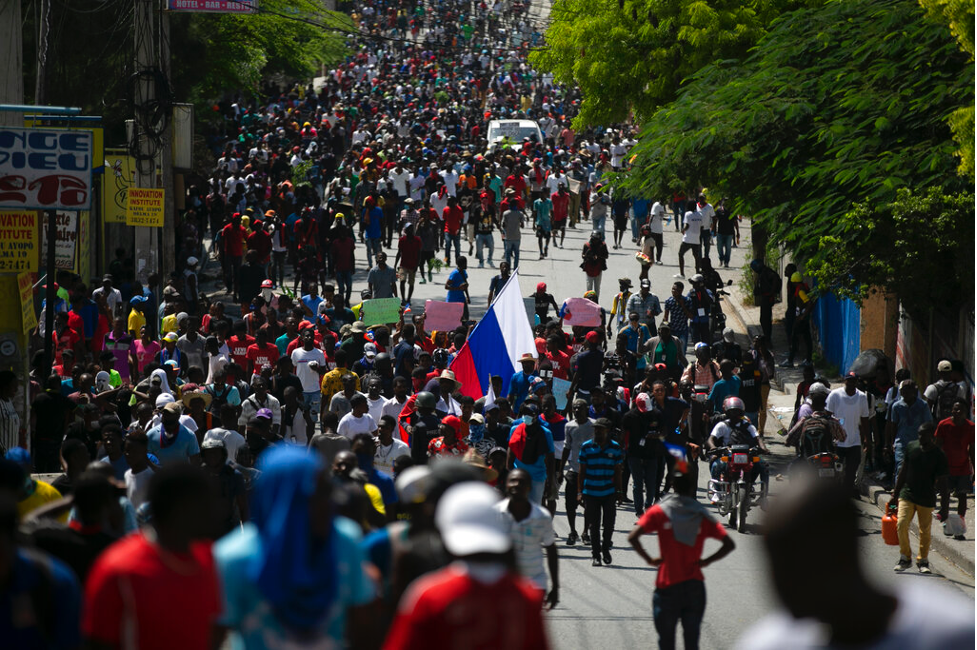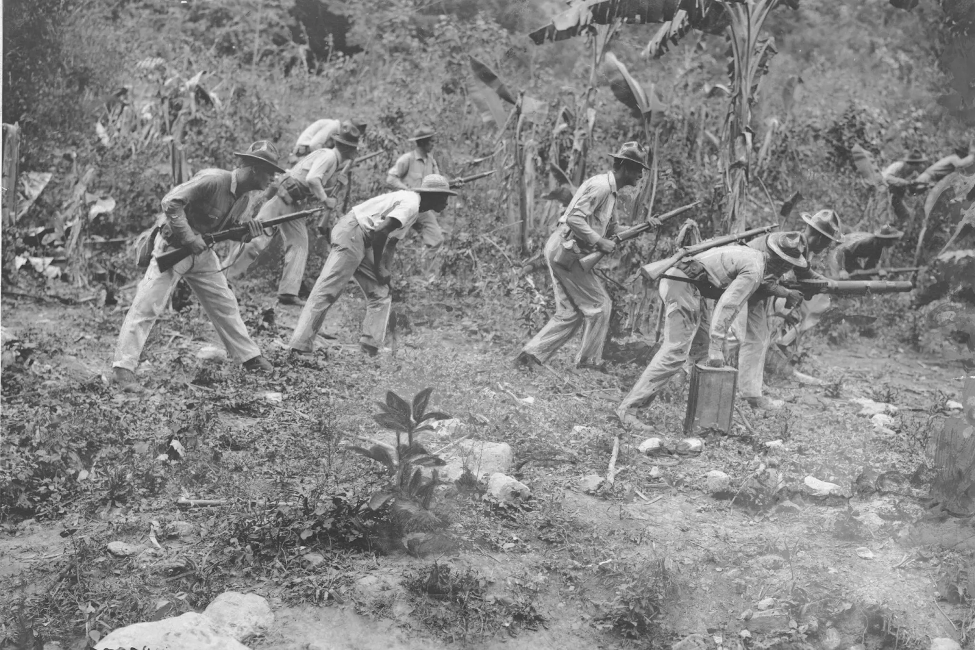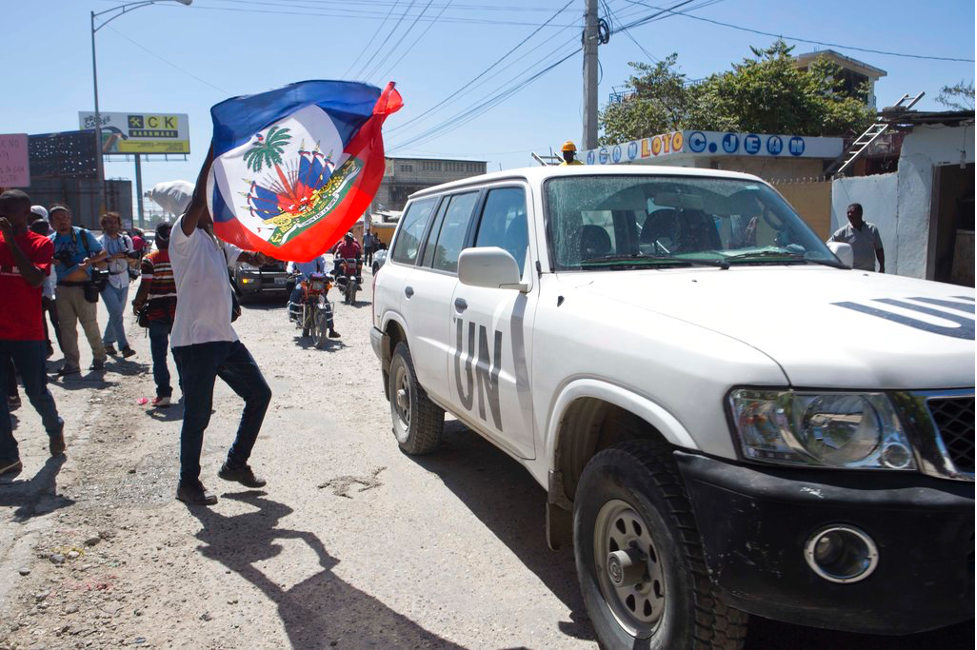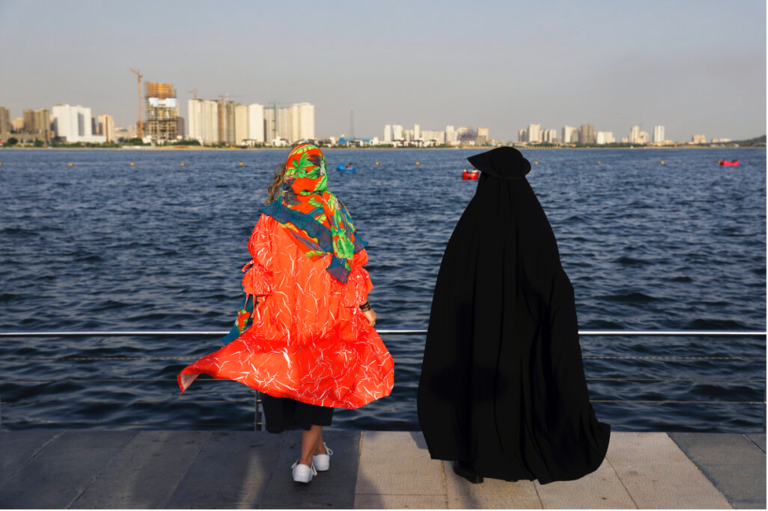
The United States military is on the brink of intervening in Haiti in order to “strengthen [Haiti’s] capacity to counter gangs and reestablish a stable security environment under the rule of law,” according to Secretary of State Antony Blinken. The US has already drafted a United Nations Security Council resolution urging for a multinational military coalition for a “rapid action force.”
Haiti’s dark history of foreign intervention, however, suggests that the United States should reverse course and that the real solution for Haiti’s turmoil must be Haitian lead.
The small Caribbean country of Haiti, once the richest slave colony in the French Empire and perhaps the entire world, is now the poorest country by far in the Western hemisphere. This is due primarily to foreign exploitation by France in the nineteenth century and the United States in the twentieth century.
In the late eighteenth century, enslaved Africans in Haiti revolted against their white French owners in what is now commonly accepted as the most successful slave revolution in world history. The Haitian Revolution became a profound symbol of hope and abolition in the Americas — and Haiti was punished for it.
Two decades after Haiti won its independence, French warships sailed back to Haiti and demanded compensation for the lost value of their slaves (effectively reverse slavery reparations). The demanded amount of 150 million francs was well above Haiti’s means, forcing the country to take out monstrous loans from Parisian banks at the threat of war. This sent the country into crippling debt for generations, as French bankers brutally exploited the Haitian economy.
Once French domination over Haiti had dwindled, U.S. business interests pressured American Marines to invade and occupy the country in 1915 under the guise of stabilizing the country. The 19-year occupation gave control of Haiti’s economy to Wall Street banks, which further extracted wealth from the already poor Caribbean nation. American corporations also set up sugar plantations where locals worked for next to nothing and sustained horrific working conditions, ominously resembling life under their previous French oppressors.

The country never recovered as further international interventions failed time and time again to bring stability or prosperity to the country. The US government supported coups both in 1990 and 2000 against the overwhelmingly popular Haitian leader Jean-Bertrand Aristide, who embraced aid to the poorest Haitians. A recent U.N. peacekeeping mission in 2017 inadvertently caused a cholera epidemic on the island, highlighting the comically ineffective nature of modern foreign interventions in Haiti. Common environmental disasters such as the infamous 2010 earthquake, paired with lackluster and corrupted international aid programs, have only exacerbated Haiti’s poverty and political instability.

In July 2021, Haitian President Jovenel Moïse was assassinated. Deeply unpopular Prime Minister Ariel Henry, who more than likely was involved in the assassination, quickly consolidated control of the Haitian government. Despite Henry suspiciously doing everything in his power to stall investigations and lawsuits surrounding Moïse’s murder, he continues to enjoy backing from the United States.
The legitimacy crisis facing Henry’s government has led several political factions, or what many call “gangs,” to take control of vast portions of Port-au-Prince. The most politically powerful and relevant of them, known as the Force Revolutionary G9 Family & Allies (FRG9), is led by “gang” leader Jimmy Chérizier. While undeniably violent, the FRG9 does resemble a potential popular revolution, as Mr. Chérizier has clearly identified that the FRG9 motives are political. His stated grievances are against Henry’s illegitimate government and the “five percent that keep all the wealth.” He claims to be fighting for a “new Haiti” where Haitians can enjoy clean water, housing and food like in other countries. Whether his arguments are made in good faith or not, to dismiss Chérizier’s strong FRG9 alliance as merely a street gang is dubious and is meant to downplay the widespread rejection of Haiti’s government and the complexity of Haitian politics.
Due to the ever-growing legitimacy crisis facing Haiti’s government and the lack of control it has over Port-au-Prince, Prime Minister Henry and much of the Haitian elite have called on international actors like the United States and its U.N. partners to intervene and bring stability to the country. Sound familiar?
The United States and Canada have already sent the Haitian National Police armored vehicles and “other supplies” to help quash the FRG9 and other “gangs” in Port-au-Prince, as the deployment of foreign troops looms on the horizon.
Former U.S. Special Envoy for Haiti and Biden-critic Dan Foote, who has recently resigned from his position due to the president’s immigration policy towards Haitian migrants, told New York Times columnist Lydia Polgreen that “American foreign policy still believes subconsciously that Haiti is a bunch of dumb Black people who can’t organize themselves…It is time to give the Haitians a chance. What’s the worst that can happen? They make it worse than we have?”
If history is any indication, a deployment of international forces to counter Haitian resistance to the government will be disastrous for the Haitian people. This risks further escalating the political turmoil into a full-blown civil war. The Haitian people would be better off deciding for themselves how their country is run. If that means a popular revolution against the illegitimate government of Ariel Henry, so be it.
It is still difficult for many in the collective West to accept that the solution for Haiti is not foreign military intervention. This centuries-long paternal White Man’s Burden position that the West has had towards Haiti, a country of roughly 12 million Black people, has led to deep resentment against white countries among the poverty-stuck Haitian population. Haitians understand that the primary root of their suffering is roughly 200 years of foreign exploitation and intervention, and that they are fully capable and intelligent enough to develop their society themselves how they see fit. Any international aid to the country should be strictly humanitarian; military supplies and personnel should be prevented from entering the country at all costs.
Haiti’s extreme poverty, seen nowhere else in the western hemisphere and comparable only to the squalor seen in countries like Somalia and Afghanistan, is a result of Western intervention, not the lack thereof.



